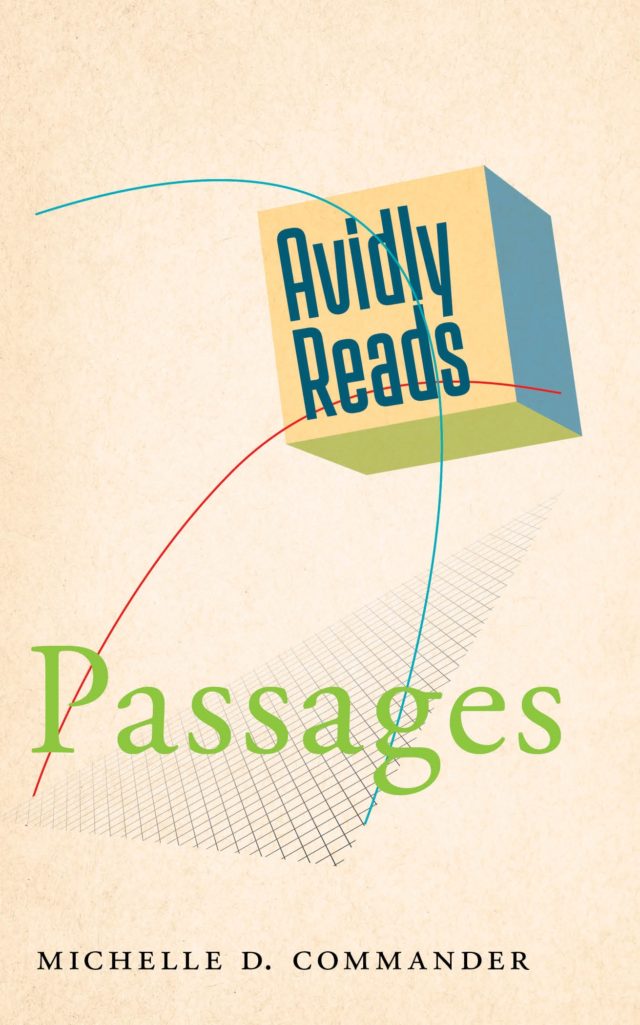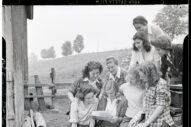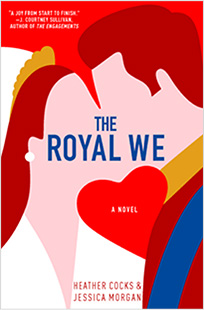Hello! I’m excited to return to book giveaways again, and we’re pleased to feature a new book published by Avidly Reads:
Avidly Reads is a series of short books about how culture makes us feel. Founded in 2012 by Sarah Blackwood and Sarah Mesle, Avidly—an online magazine supported by the Los Angeles Review of Books—specializes in short-form critical essays devoted to thinking and feeling. Avidly Reads is an exciting new series featuring books that are part personal reflection, part cultural criticism, each bringing to life the author’s emotional relationship to a cultural artifact or experience. Avidly Reads invites us to explore the surprising pleasures and obstacles of everyday life.“It is a truth too rarely acknowledged that there is nothing better than being both smart and fun: how lucky for us, then, that Avidly Reads books are both. To delve into them is to engage new ideas without having to sacrifice pleasure for knowledge, or feeling for thinking.”—Naomi Fry, staff writer at the New Yorker
The books cover a wide range of compelling subjects, from board games to theory, and Avidly Reads Passages comes out today:
In Avidly Reads Passages, Michelle D. Commander plies four freighted modes of travel—the slave ship, train, automobile, and bus—to map the mobility of her ancestors over the past five centuries. In the process, she refreshes the conventional American travel narrative by telling an urgent story about how history shapes what moves us, as well as what prevents so many Black Americans from moving or being moved. Anchored in her maternal kin’s long history on and alongside plantations in rural South Carolina, Commander explores her family members’ ability and inability to navigate safely through space, time, and emotion, detailing how Black lives were shaped by the actual vehicles that promised an escape from the confines of American racism, yet nearly always failed to deliver on those promises. Using personal and public archives, Avidly Reads Passages unfolds distinct histories of transatlantic slavery ships, the possibilities presented by rail lines in the Reconstruction South, the fateful legacies of school busing, and the ways that Black Americans attempted to negotiate their automobility, including through the use of road and travel compendiums such as Travelguide and The Negro Motorist Green Book.
In order to understand the intricacies of slavery and its aftermath, Commander began her exploration with the hope of engaging with the difficult evidences and stubborn gaps in her family’s genealogy; what she produced is a biting and elegiac reflection on working-class life in the Black South. Commander demonstrates that the forms of intimidation, brutality, surveillance, and restriction used to control Black mobility have merely evolved since slavery, marking Black life writ large in America, with neither the passage of time nor the passage of laws assuring true and adequate racial progress. Despite this bleak observation, Commander catalogs and celebrates, through affecting stories about her beloved South Carolina community, the compelling strivings of Southern Black people to survive by holding on firmly to family, and their faith that new worlds could be imagined, created, and traveled to someday.
This sounds fantastic; we have one copy to give away.
THE TASK: As usual, I’ll be picking the winner at random. To enter, please comment and share the non-fiction book you’ve read that made the biggest impact on your life.
THE RULES: All entries must be posted in the comments of this post by 9 p.m. Pacific time on Friday. FYI, if this is the first time you’ve commented here, the system will automatically kick you into comment moderation, but don’t worry, I will rescue you. (Open to US readers only; all prizing courtesy of the publisher.)






















